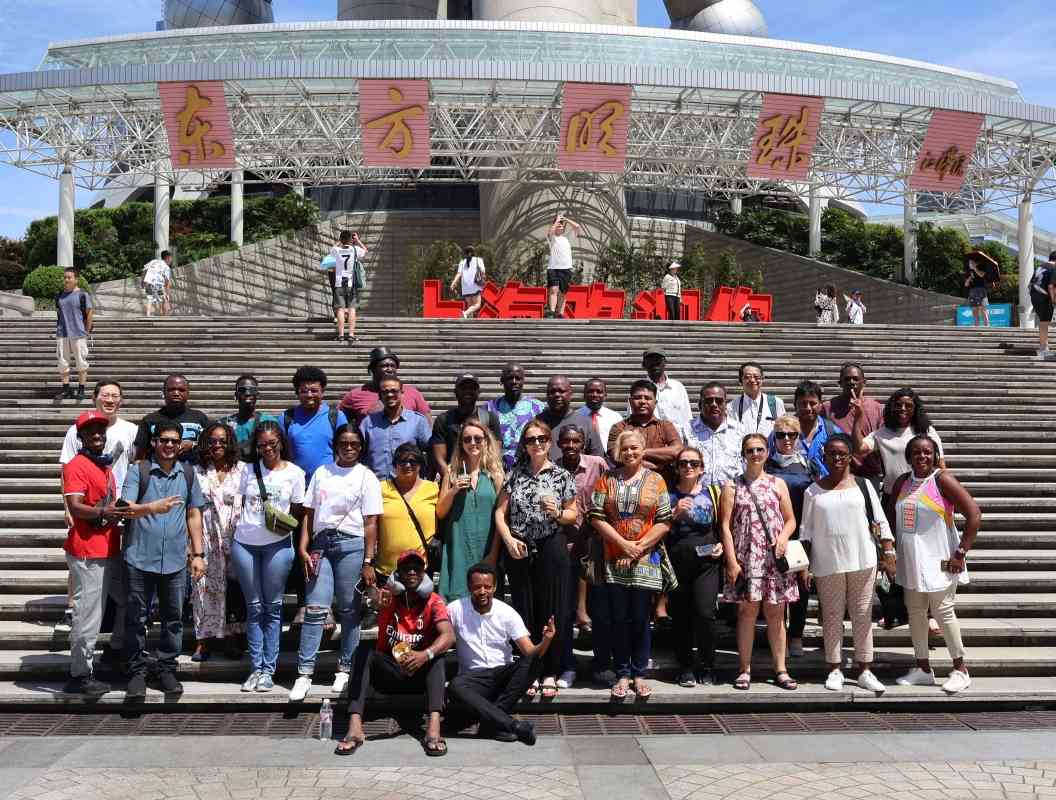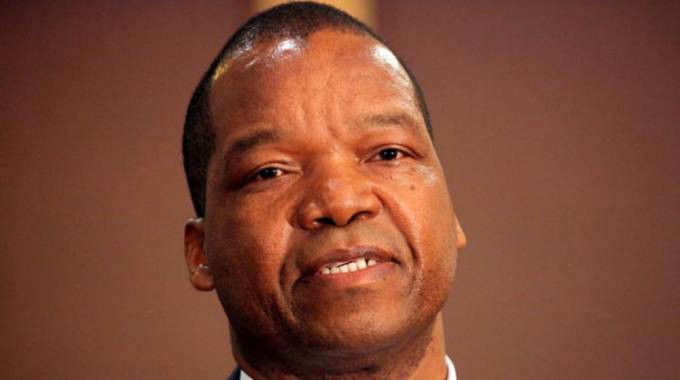
A burly middle-aged man towers over scores of people forming a queue to board an Ethiopian Airways plane at Robert Mugabe International Airport in Harare, Zimbabwe, on a moderately cold July afternoon.
Apart from his large frame grabbing attention, David Muchuchu has been conspicuously pulling out his Huawei brand cellphone to document the last moments before he embarks on this journey to the far-east.
There, by his own admission in retrospect of the two-week trip, an “extremely eye-opening” experience awaits in Jinhua, a model modern city in China’s Zhejiang province.
“I would say that my experience in China was extremely eye-opening,” Muchuchu grins as he tells this reporter about his time at the Seminar for Young Media Professionals in Belt and Road Initiative (BRI) Countries held at Zhejiang Normal University (ZJNU) last month.
Muchuchu was part of a five-member Zimbabwean delegation of media professionals who underwent training last month as part of China’s efforts to capacitate and empower its BRI partners across sectors.
Done under the Forum on China-Africa Cooperation framework, the programme brought 33 participants, from various parts of Africa as well as other developing countries across the globe, for an educational exchange that encompassed several areas, including the Asian country’s history, development trajectory and contemporary media industry landscape.
Upon touchdown back in Harare, Muchuchu’s enthusiastic attitude contradicts the fatigue he has after spending more than a day in transit, with layovers in Beijing and Addis Ababa –Ethiopia’s capital city.
But, based on his description of the trip, the energy he exudes depicts the level of inspiration gained during the tour.
- Inside China’s ‘common prosperity’, art of sharing
Keep Reading
“This BRI project is out of this world, we really appreciate that because our (Zimbabwe’s) relationship with China has reached a level where if we seriously partake of it as a country and effectively make use of it, we can then change the fortunes of our country,” he said.
In essence, the Belt and Road Initiative (BRI), launched in 2013, is an immense infrastructure development strategy aimed at linking China with other parts of Asia, Europe and Africa through a network of roads, railways, ports and sea routes.
The initiative seeks to promote economic cooperation, trade and development among participating countries.
Following years of perceived isolation, China is opening itself up for cooperation across the spectrum, based on a concept of mutual benefit, a macrocosm of its local principles of “common prosperity”.
“Our President Xi Jinping always says that we are a community with a shared future so we are not only responsible for ourselves but we think we can do more for the future of our world,” Xu Shufang, the chief of consular affairs of the Consular Affairs Division of the Jinhua Municipal People's Government in Zhejiang Province, told NewsDay.
True to Shufang’s words, President Jinping emphasized “the building of a community with a shared future for mankind” while delivering a keynote speech at the first session of the 14th National People's Congress, the country's national legislature, last year in March.
“China's development benefits the world, and China cannot develop itself in isolation from the world,” said Jinping.
“We must solidly promote high-level opening up, not only making good use of the global market and resources to develop ourselves, but also promoting common development of the world.”
Internally, China is pursuing a principle of common prosperity, which entails bold commitments to reduce income inequality and promote people-centered development for its citizens.
Clean streets, jaw-dropping skyscrapers, massive production and technological advancements define cities in Zhejiang, their reality are only future plans in most parts of the world.
With concerted efforts and goodwill this level of accomplishment can be replicated back home, Muchuchu contends:
“China is basically the world’s producer of almost anything and our relationship with China is good so far but I think we should deepen it because Zimbabwe deserves to be in a better place and the best place where we can actually copy some tactics to implement is from this country.”
According to Investopedia.com, China has become known as "the world's factory" because of its strong business ecosystem, relatively lax commercial regulations, low taxes and duties, and competitive currency practices.
An accomplished freelance journalist from Sierra Leone, Eric Kawa – also part of the seminar – believes there are lessons for the Asian giant’s BRI partners.
“I am mostly moved by the Common Prosperity history (and) how Chinese people were able to develop villages that were dilapidated and did not have access to many services into cities, that is something very important,” Kawa said in an interview.
“The BRI programme is something that I believe will serve in bridging that gap between Africa and China, so far the relationship has been going so great with a lot of infrastructural developments in many of the partner countries.”
In recent years, China has become the largest source of foreign investment in Zimbabwe since the latter adopted a “look-east policy” two decades ago that seeks trade as well as political agreements with Asian countries considered friendly to it.
The Chinese Embassy in Zimbabwe recently revealed that trade between China and Zimbabwe hit a record high of over US$3 billion in 2023, a 30% increase from the previous year.
In 2021, business between the two countries racked in close to US$2 billion showing a continuous upward trend over the past three years.
Although Sino-Africa relations are not perfect, projections show that creating a conducive environment for learning, exchange and trade with mutual benefits could see resource-rich countries like Zimbabwe quickly developing to modernity.
Afterall, according to Shufang, the Chinese community is ready for such kinds of engagement for the holistic betterment of mankind.
“This concept of a better life does not only mean for ourselves (in Jinhua), but also for all the citizens in the country and the world,” she said.










